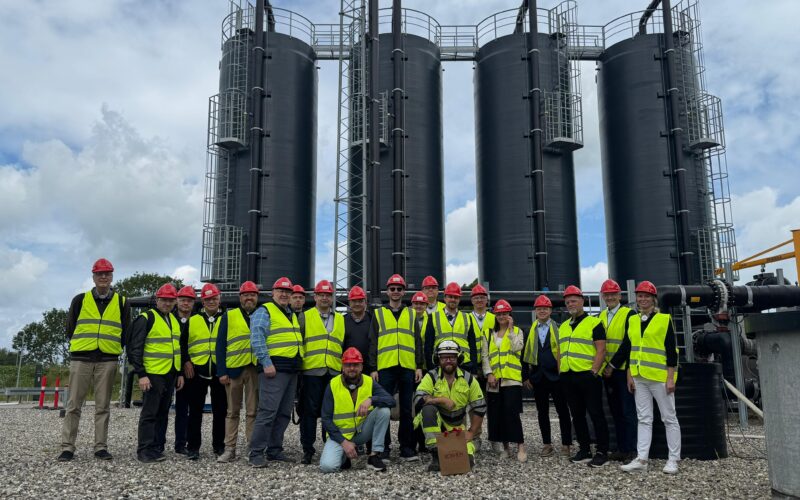UABIO experts on the prospects for the production of advanced biofuels in Ukraine
The article by the team of authors: Georgii Geletukha, Tetiana Zheliezna, Semen Drahniev and Petro Kucheruk, who are experts in the field of bioenergy, has been published in the Gas Institute magazine (No. 3).
The authors considered prospective directions for the development of the motor biofuels market in Ukraine. We share the material published on the SAF platform.
Important theses

kraine has a significant potential for the production of liquid biofuels for the transport sector.
The greatest decarbonization effect for the sector can be achieved due to the use of advanced biofuels (biofuels of the 2nd generation), that is, produced from raw materials that are not food or feed. A complete list of raw materials is available in the article.
Today, it is mainly biodiesel and bioethanol of the first generation, since the technologies for obtaining advanced biofuels from lignocellulosic feedstocks are not yet sufficiently developed in the country.
Directive (EU) 2018/2001 on renewable energy sources (RED II) limits the share of 1st generation biofuels in achieving the goals for the consumption of renewable energy in transport. The share of such biofuels in a certain EU country can be no more than 1 % higher than the share of these biofuels in the gross final energy consumption of road and rail transport of that country in 2020, but no more than 7 %.
The UABIO team of experts sees the following as the main directions of development of the motor biofuels market in Ukraine:
- to create a domestic market and expand the export of 1st generation biofuels;
- to expand the possibilities of production of 2nd generation (advanced) biofuels with a significant share of their export to EU countries;
- to adapt Appendix I of the EU RED II Directive for the conditions of Ukraine.
Currently, the most important types of raw materials from Annex IX of the EU RED II Directive for the production of advanced biofuels and biogas for transport are agricultural residues (straw, husks, corn cobs), herbaceous and woody energy plants and cover crops.
In the future, according to the authors, it seems appropriate to develop the production of advanced bio-ethanol from byproducts of grain corn cultivation as well as advanced biodiesel from oilseed energy crops grown on unused agricultural land.
Currently, there are 22 small bioethanol plants in Ukraine, which in total can produce more than 380,000 t/year of biofuel. Of them, 7 enterprises are new private facilities, the rest are reconstructed old state plants. However, only a few bioethanol plants operate stably at full capacity.
The total potential of biogas production in Ukraine is currently 8.16 Mtoe/y, of which a quarter can be allocated for the transport needs. By 2050, the production potential of biogas as a motor fuel may increase to 4.7 Mtoe/y, mainly due to the use of cover crops as feedstock to obtain biogas.
In Ukraine, there is still no practice of biomethane consumption in transport, therefore, there is no standardization of the quality of biomethane as an automobile fuel.
Ukraine has the largest area of agricultural land in Europe and, accordingly, one of the best agricultural raw material potential for biomethane production in the world. Taking into account biomass from cover crops, which can be grown on 20% of the arable land, the potential for biomethane production in Ukraine is 21.8 billion m3/year.
According to expert estimates, the area of unused agricultural land in Ukraine is up to 4 million hectares, and more than 5 million hectares are unsuitable for agricultural production due to pollution, mining and other reasons related to the consequences of hostilities.
In this sector, Ukraine can compete with any country, as it can offer the cheapest raw materials. Therefore, biomethane is the cheapest of all renewable gases.
The production of biomethane creates a new type of business for Ukrainian farmers, which is practically independent of logistics, the problems of which do not allow them to effectively export grain and other types of agricultural products.
We remind you that UABIO is a partner of the Sustainable agribusiness platform (SAF).
SAF is a communication platform that brings together agribusiness stakeholders and aims to establish strong links between market players and introduce sustainable approaches in agriculture.
For this platform, our team prepares verified professional content on the bioenergy sector.


